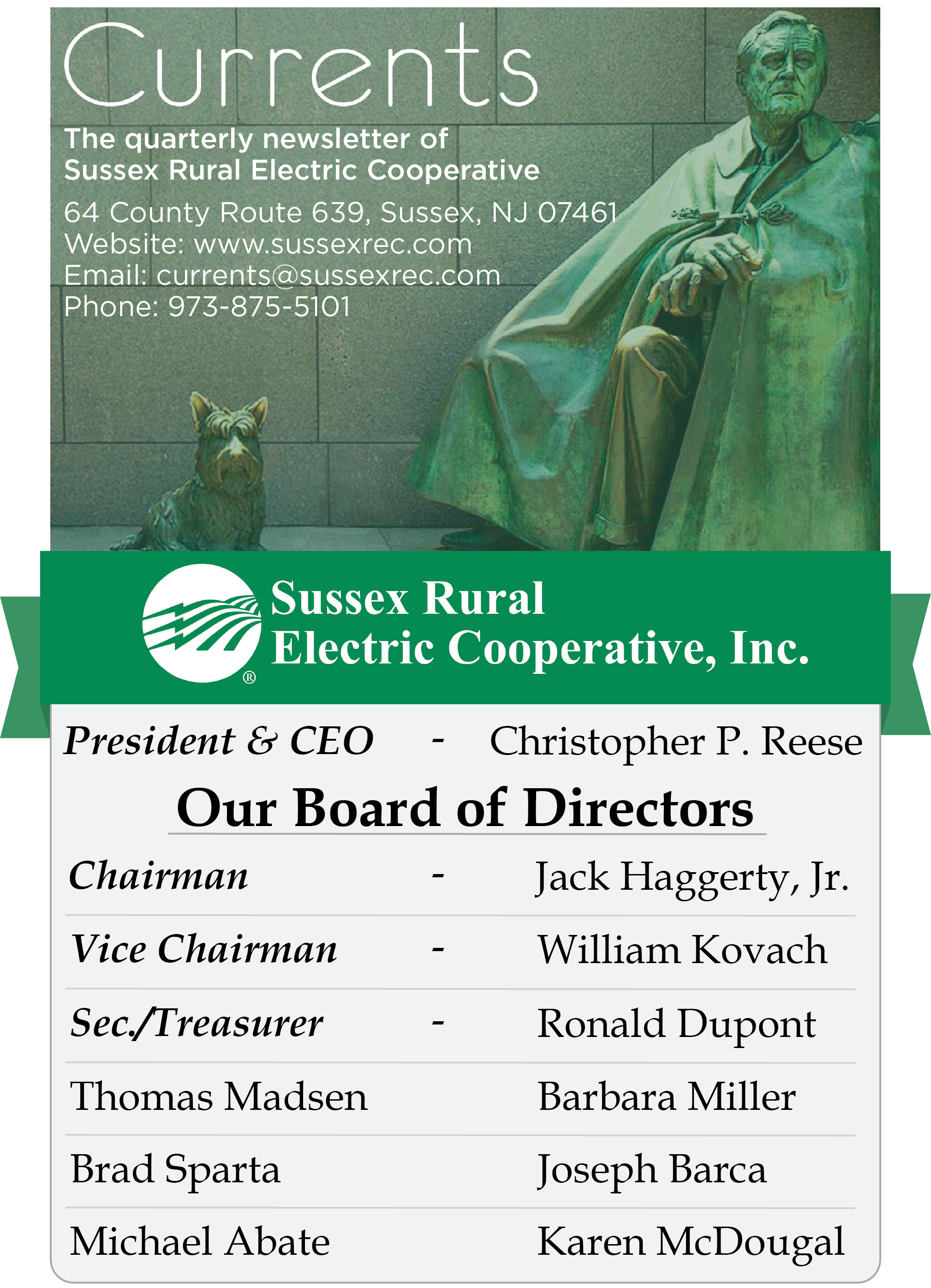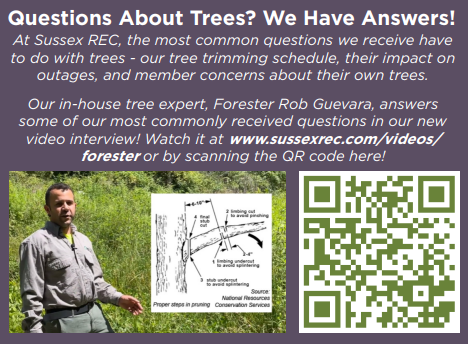To view the full print/pdf version of 2024's Volume 2, Issue 4 of Currents, click here
For previous issues of Currents, visit our Currents Library
NJ Crews in Georgia: Providing Aid After Hurricane Helene
By: Claudia Raffay, Director of Marketing & Member Services
Email: craffay@sussexrec.com
This fall, two back-to-back major hurricanes, Helene and Milton, made landfall on the west coast of Florida. Hurricane Helene, the first of the two, hit the Big Bend area of Florida on September 26th as a Category 3 storm and lumbered north for several days, causing billions of dollars in wind and flooding damage. It took more than 200 lives before dissipating. Lineworkers responded from across the country to help restore power in the wake of one of the most consequential storms in the 87-year history of the region’s electric cooperatives.
Helene knocked out electric service to an estimated 1.25 million co-op members as it passed from the Florida coast to southwest Virginia late Thursday into daylight on Friday. It destroyed homes and businesses along with most of the area’s infrastructure of high-voltage transmission structures, highways, and powerlines.
The cooperative model is based on mutual support. Our territory has benefited from this support in the past. After Superstorm Sandy, co-ops from up and down the East Coast came to our aid. Within days of the 2024’s hurricanes, linemen from Sussex REC were on the ground in Georgia where co-ops faced over 404,000 outages to offer whatever help they could.
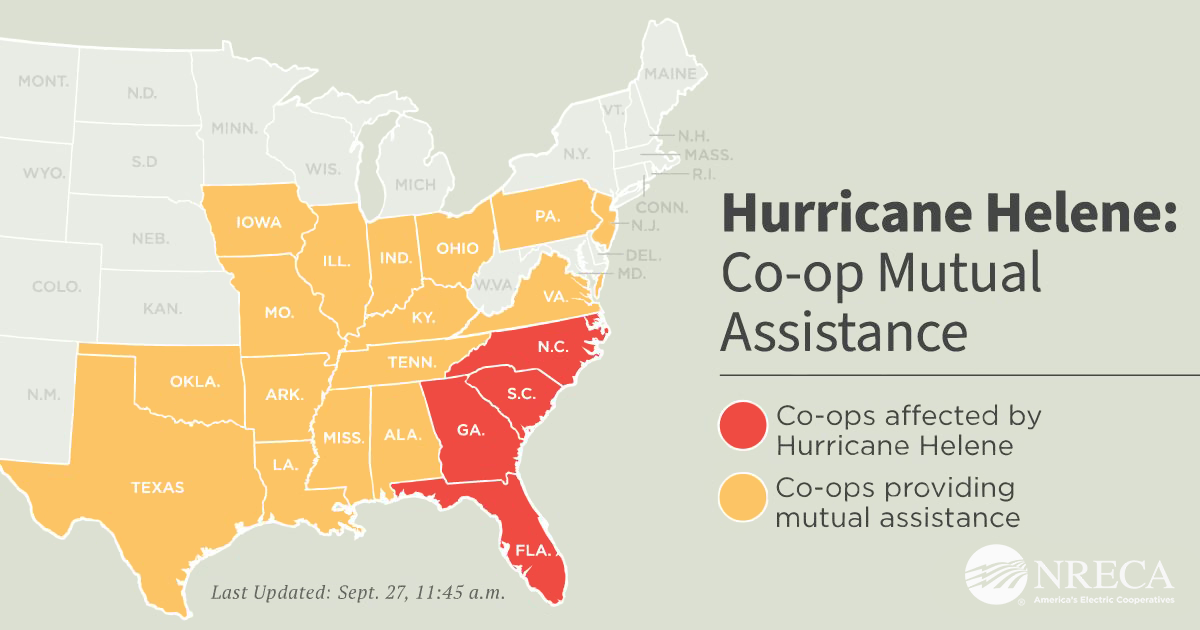
Being a lineman is a noble endeavor, but it’s not for the faint of heart, especially during mutual aid work. Seven of Sussex REC’s linemen answered the call: Jeff, Brian, Tony, Tom, Scott, Jake, and Travis. I sat down with some of them and discussed what it is like to work mutual aid during a catastrophic event such as Helene.
Our responding crews varied in age. Two had been to Louisiana for Hurricane Katrina 19 years earlier, while two were first time dads with little ones at home. One of our linemen had been married just the week before and canceled his honeymoon to get the experience, and paycheck, that comes with working mutual aid on a big storm.
The five-hour journey ended up taking our crews nine hours. Major highways were closed, so our linemen were diverted onto local roads through the Blue Ridge and then Smokey Mountains. In pitch black darkness, their bucket trucks lumbered up mountains at 15-20 miles-per-hour and then went straight down a hill on the other side. “It was Six Flags, pretty much.” Lineman Brian Garvilla told me. “Without the guard rails.”
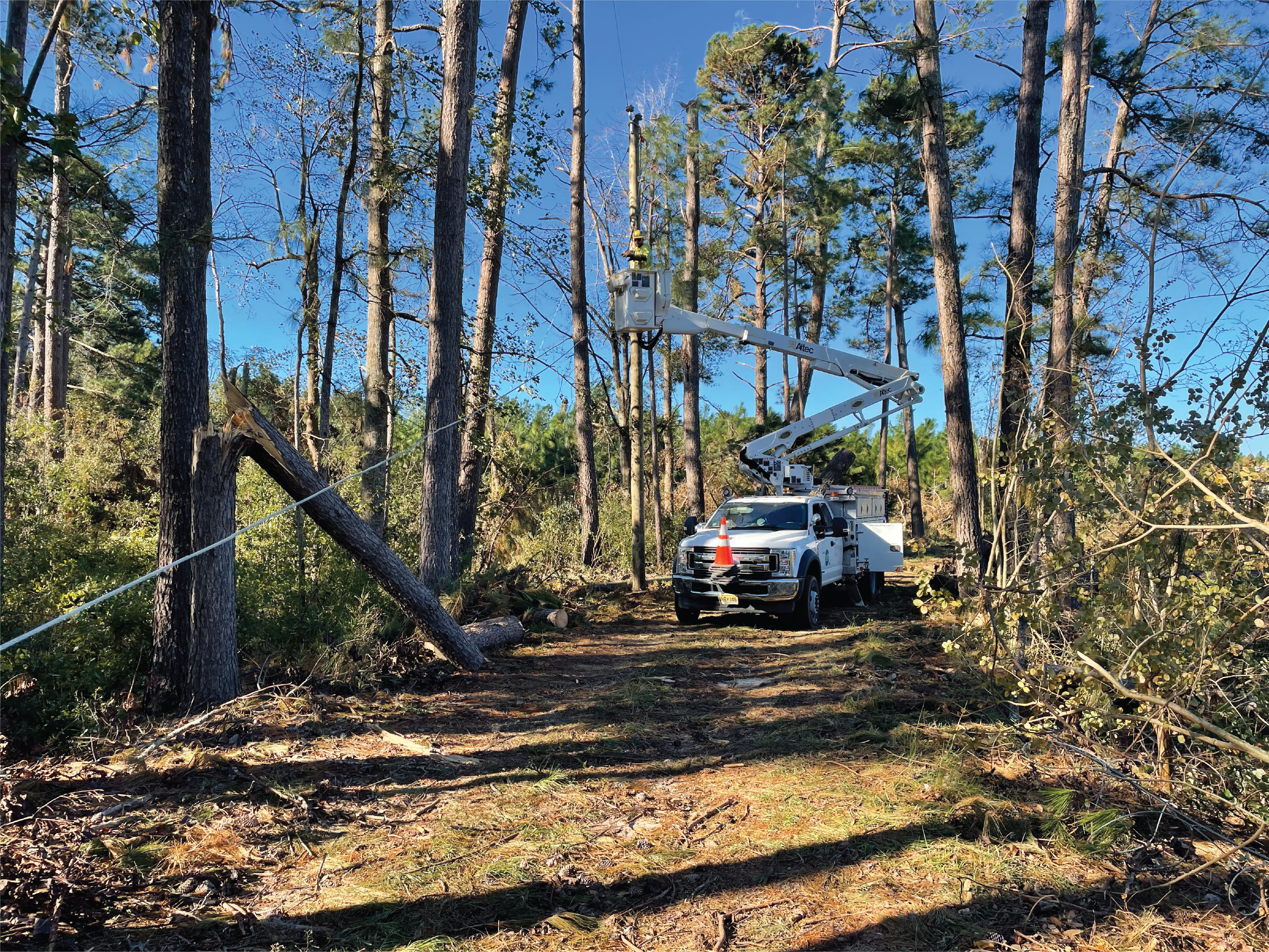 Calling the area of Georgia our crews worked in “remote” would be generous. On a single street, homes were separated by miles of peanut, cotton, blueberry, or tobacco fields. Even in our rural corner of New Jersey, our streets and power lines are more densely populated. There, our linemen could work an entire day to only restore a handful of homes.
Calling the area of Georgia our crews worked in “remote” would be generous. On a single street, homes were separated by miles of peanut, cotton, blueberry, or tobacco fields. Even in our rural corner of New Jersey, our streets and power lines are more densely populated. There, our linemen could work an entire day to only restore a handful of homes.
Our linemen found some of the most challenging aspects were not the repairs they were making in the field. The comforts you’d find at home were few and far between and, with thousands of linemen on hand to provide mutual aid, our crews suddenly had hundreds of new roommates. Alarms would start blaring at 4:00 am across a tent jam-packed with 400 linemen. At 4:15 am, for the fifth morning in a row, the jerk with Metallica’s “Enter Sandman” as his alarm AGAIN refused to wake up, sending waves of outrage across the cramped sleeping quarters.
In this tent, the sheets and blankets were likened to tissue paper. Towards the end of our crews’ time there, Georgia grew colder, but the air conditioners kept cranking. Linemen would steal towels from the shower line to add just a little more warmth for the night. All of the linemen there grew accustomed to little sleep, getting ready in the dark, and standing in long lines for showers (often cold ones) and longer lines for breakfast. When the crew was ready each morning, our guys walked a half-mile in the dark to their trucks, carrying their gear along with cases of water and Gatorade.
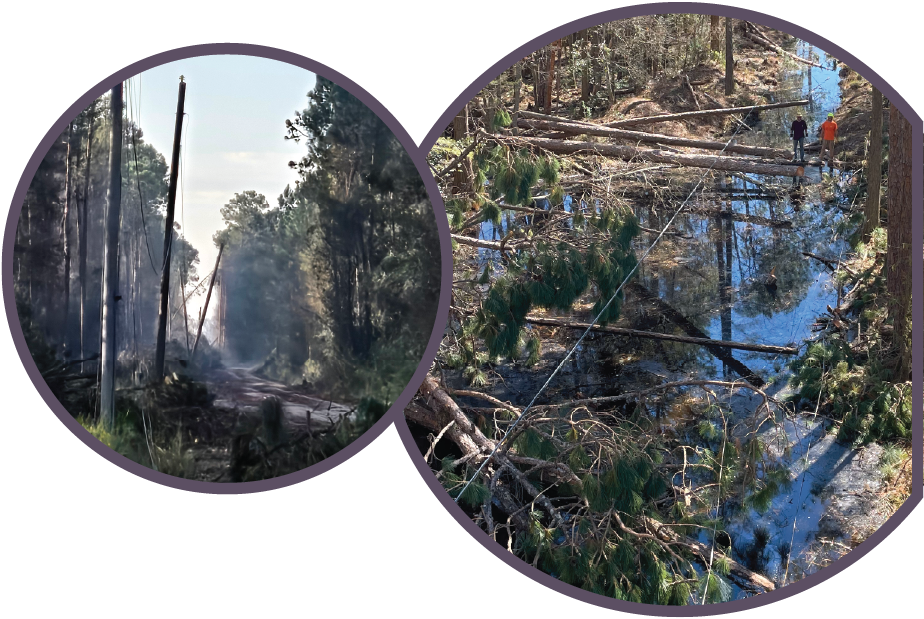 They shared stories about large spiders, wild lemon plants with huge thorns, mosquitoes, and “gators.” Of all the animals they encountered, the most numerous were dogs. “Everywhere we stopped the truck, a dog would come running up to you,” said Chief Lineman Jeff Rowen. “It’d make you think of your dogs at home.”
They shared stories about large spiders, wild lemon plants with huge thorns, mosquitoes, and “gators.” Of all the animals they encountered, the most numerous were dogs. “Everywhere we stopped the truck, a dog would come running up to you,” said Chief Lineman Jeff Rowen. “It’d make you think of your dogs at home.”
Days were long, but our crews pushed through. They explained that the work gets personal once you get to meet the people you’re helping. The linemen were amazed at the hospitality offered to them by the members of Georgia’s co-ops. Despite being out of power for almost four weeks, people would come out to thank the crews and bring them food and drink. One man drove to the nearest open gas station to buy our crews some iced tea. He apologized that they were warm, even though he hadn’t had power for weeks.
The kindness of these people, who had just faced disaster, was the thing that stuck out most to our crews. “The biggest thing to take from the trip was just how generous and nice people still were,” Lineman Tony Salokas said.
The linemen were invited to barbecues at people’s homes. They were amazed to talk to members and learn about their stories. Local churches made meals, people from town lined up to do laundry for the linemen, and all expressed deep gratitude for the help they’d received.
After hearing their stories, I asked if it was worth it. Was it worth talking to the babies on Facetime? Was it worth being away from home, missing your honeymoon?
They all agreed it was, indeed, worth it. These linemen represented our co-op and our state well. They have memories of people and places that they will never forget, and while they may never listen to “Enter Sandman” again, they are all better for the experience.
